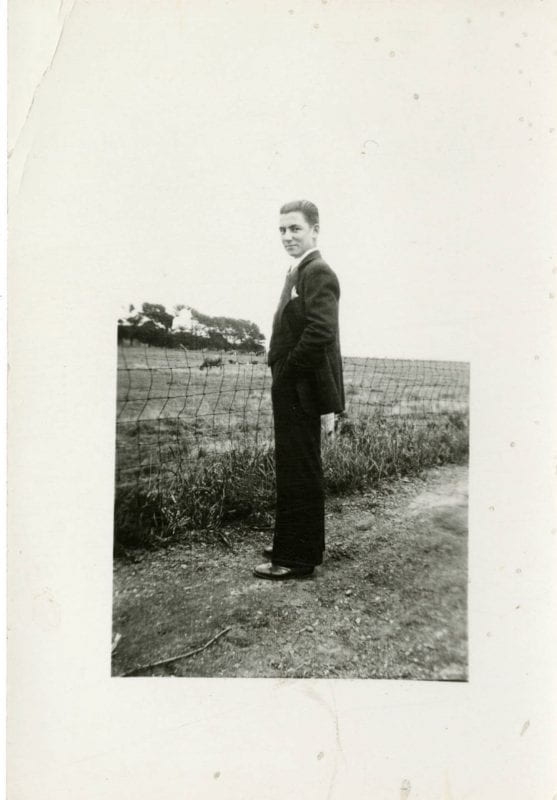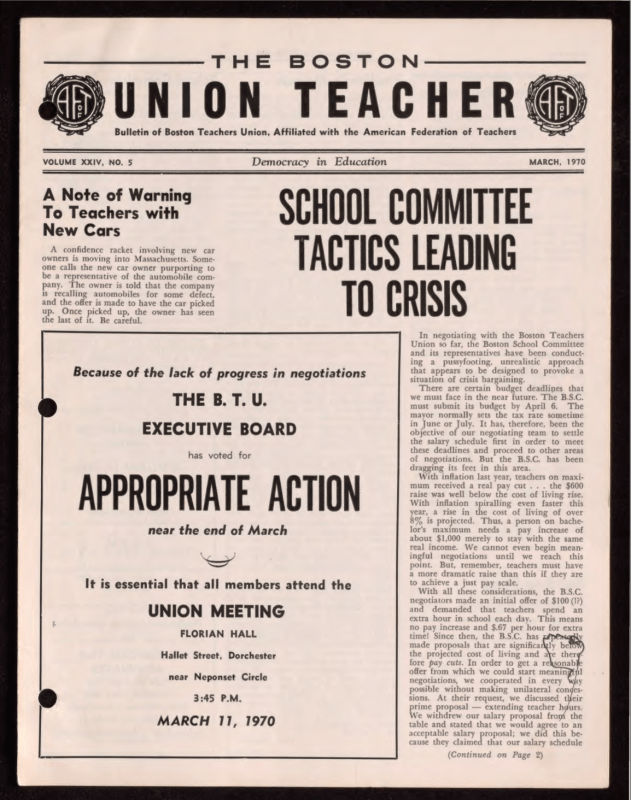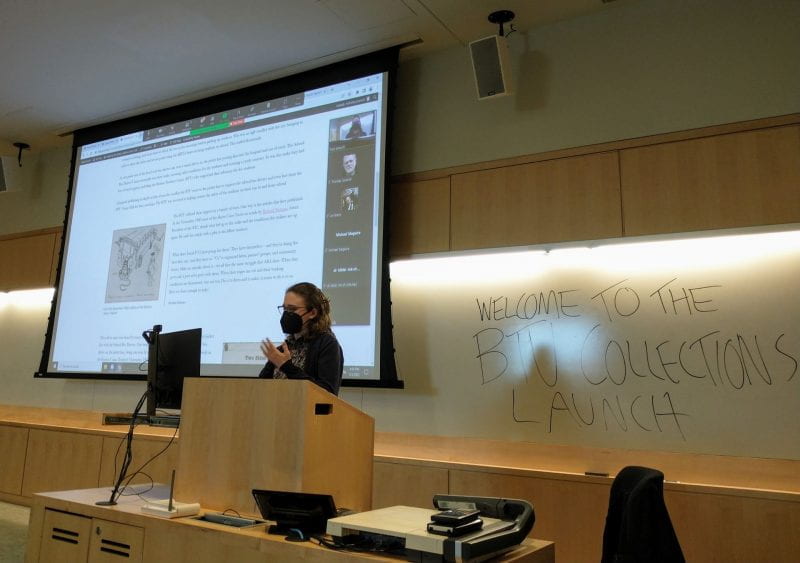Melissa Shook: Inside and Out, a two-part exhibition in the University Hall Gallery and in the Grossmann Gallery on the fifth floor of the Healey Library, brings together photographs, video works, objects, and ephemera spanning six decades to honor the life’s work of artist, educator, and activist Melissa Shook (1939-2020). The exhibition is co-curated by Senior Lecturer II in Art History Carol G.J. Scollans and University Hall Gallery Director Samuel Toabe and will be on view from September 6 through October 29, 2022.
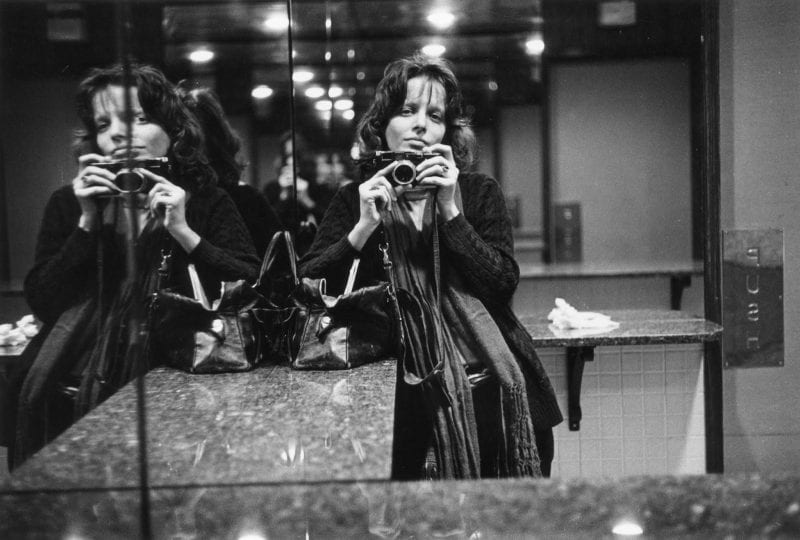
Best known for her self-portraits and documentary-style photography representing and humanizing members of marginalized communities – including immigrants, queer people, elderly people, and people experiencing houselessness – Shook’s practice expanded throughout her career to include writing, book making, drawing, sculpture, video art, and social practice art through direct action and mutual aid projects. Shook joined UMass Boston in 1979, where she taught photography in the Art and Art History Department for thirty-one years, leaving an indelible mark on the department’s pedagogy as well as generations of students. A catalog with images of Melissa’s photographs will accompany the exhibition, including an introduction by Samuel Toabe, a contextual essay by Carol G.J. Scollans, and texts by Professor of Art Margaret Hart and Melissa’s daughter Krissy Shook. The University Hall Gallery presents the personal side of Shook’s practice, photographing and writing about her own life, as well as sculptural works and video experiments. Healey Library’s Grossmann Gallery features a large selection of her series -Streets are for Nobody, along with archival materials reproduced from the library’s collection of Melissa’s papers, as well as handmade books, sculptural objects, and a collection of her film and pinhole cameras.
A public reception will be held on Saturday, September 17, 2022, from 2:00-4:00 p.m., starting in the University Hall Gallery.
The establishment of the Melissa Shook Documentary Photography Award in honor of the artist coincides with the exhibition. This fund will provide an annual prize to one or more UMass Boston students or graduating seniors who demonstrate exceptional skill or promise in photography, with a preference for documentary photography skills. The award will be presented this year for the first time to Chloe Tomasetta whose photographic work in 2021 documented busy street scenes in Boston’s historic Haymarket district during the height of the pandemic.
The exhibition and catalog are supported by the Paul Hayes Tucker Fund as well as a generous gift by Caleb Stewart and Richard Snow. The Melissa Shook Documentary Photography Award is made possible with a generous gift by Nancy and Wendell Lutz. To contribute to the Melissa Shook Documentary Photography Award, please donate via this link.
For more information, please email UHGallery@umb.edu.
Melissa Shook donated her papers to University Archives and Special Collections in the Healey Library at UMass Boston. The collection contains files kept by Shook and includes correspondence, manuscripts, notes, interviews, research materials, workshop catalogs, show announcements, archival photographic prints, slides, hard drives, MiniDV tapes, DVDs, CDs, a VHS tape, and a selection of framed photographs and text from Shook’s 1994 publication Streets are for Nobody. Additional archival collections related to Shook include University of Massachusetts Boston, Art Department student photographs of the Healey Library, 1982-1984 and a collection of photographs taken by Shook for the Writers’ Workshop hosted by the William Joiner Institute for the Study of War and Social Consequences.
For more information about these collections, please email library.archives@umb.edu.
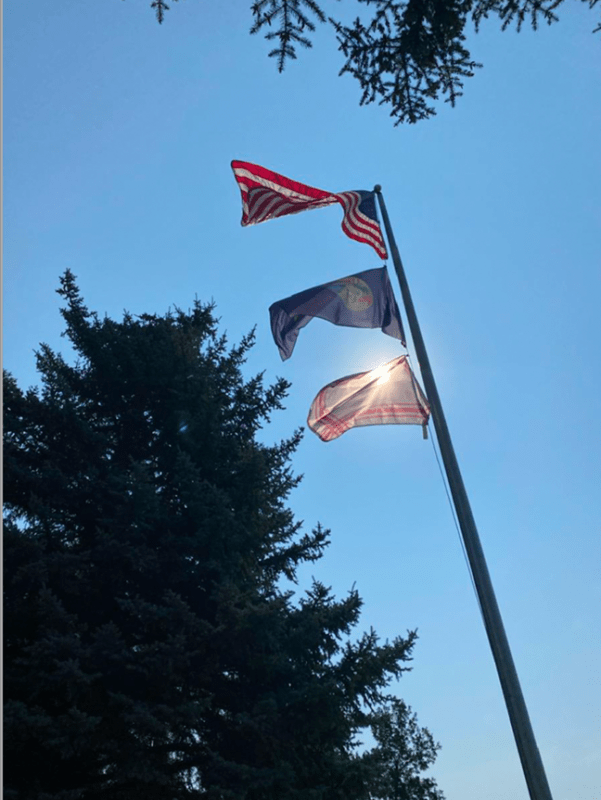
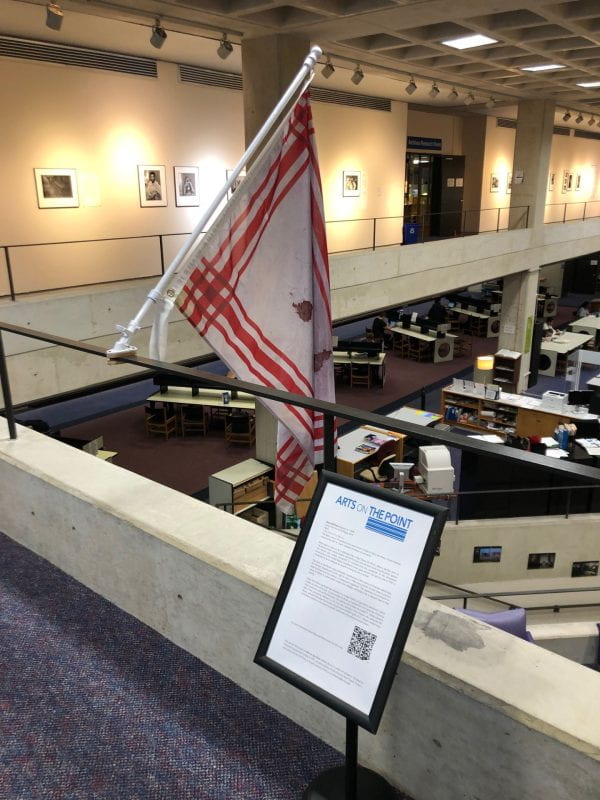

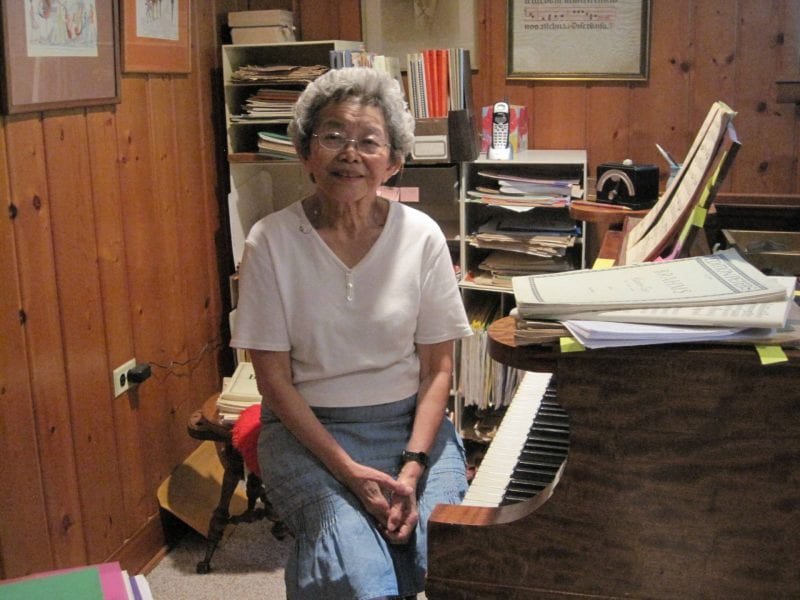
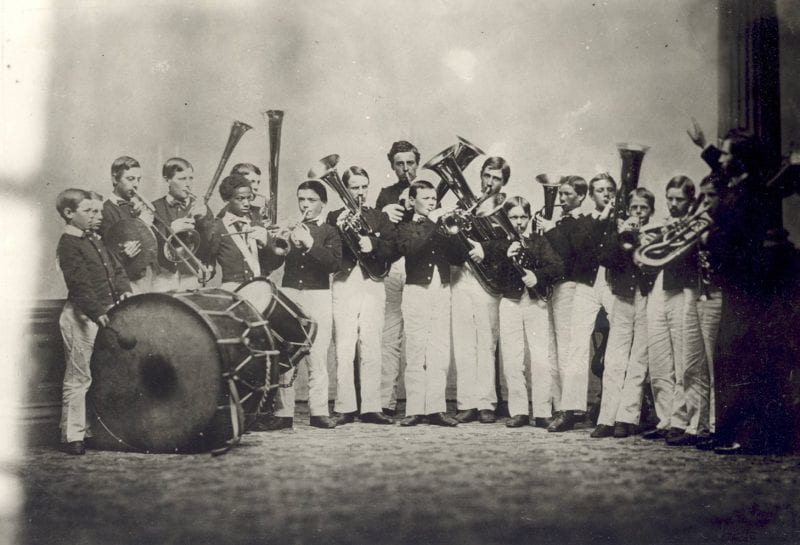
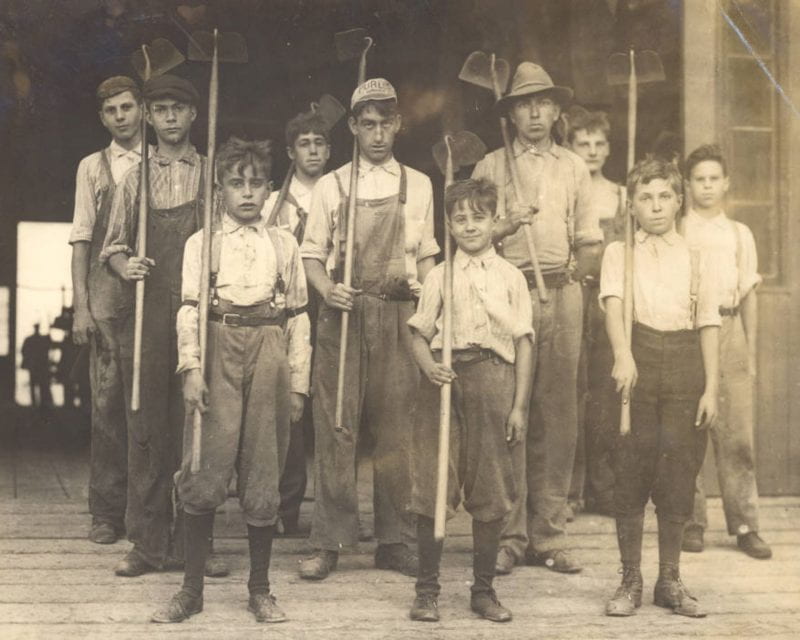
![Two photographs on the page of a scrapbook. The top photograph shows a person standing in front of a small airplane. The lower photograph is a portrait of a young man in front of a brick wall with "Bob [illegible]" written in pencil underneath.](https://blogs.umb.edu/archives/files/2022/07/ti3-657x800.png)
